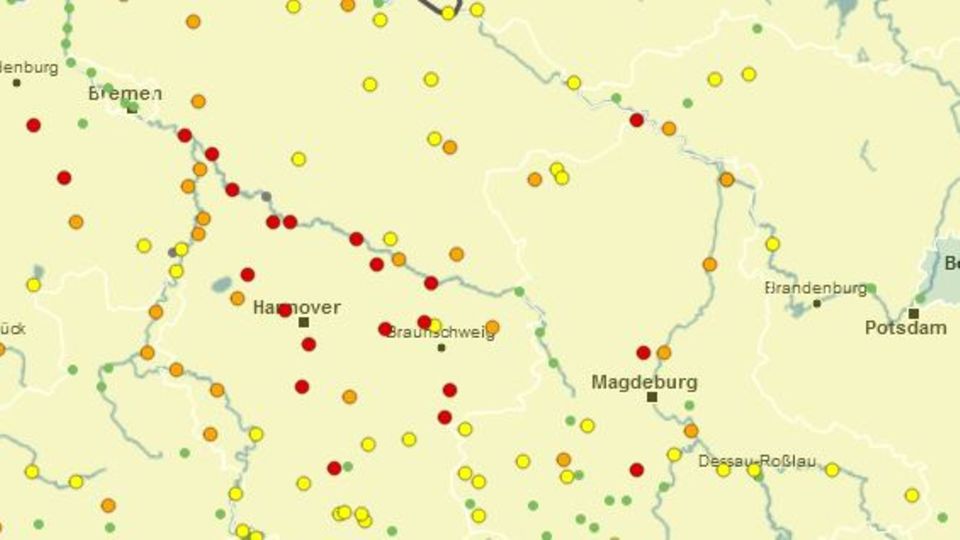Flood
Disaster protection briefly explained – who is responsible and who pays?
Disaster protection in Oberhausen, here a dike secured by the technical relief organization due to the storm “Zoltan” at the end of December
© Eibner / Imago Images
The current flood in Germany is fueling the debate about adequate disaster protection and its financing. These rules currently apply.
Who is responsible in the event of disasters such as floods or forest fires?
Protection against disasters such as floods or forest fires is the responsibility of the states – this is regulated by the Basic Law. Basically, “disaster protection is a state matter,” emphasized government spokesman Steffen Hebestreit on Wednesday. This has a lot to do with the local conditions and knowledge. The municipalities, districts and independent cities are the contacts for local citizens. They are responsible as so-called lower disaster control authorities.
What role does the federal government play in disaster control?
According to the Federal Ministry of the Interior, the federal government has “no direct responsibilities” in disaster protection. However, according to a ministry spokesman, it supports the states “with additional equipment”. The states can request police forces from other states or forces from federal institutions such as the Federal Agency for Technical Relief, the Federal Police and the Bundeswehr. If the accidents affect several federal states, the federal government also provides support through information, advice, coordination and the provision of resources.
There have already been calls for more powers for the federal government – but the federal government sees no reason for this. It is currently clear that “disaster protection is very well positioned in this situation,” emphasized Hebestreit.
Can the federal government provide financial support to affected areas?
The federal government is free to provide financial aid. After the flood disaster in the Ahr Valley, the federal government contributed up to 400 million euros to the states’ emergency aid. The federal government even pledged up to 30 billion euros for the reconstruction of the affected regions. The aim is to rebuild the infrastructure and support private households, companies and public institutions.
Is there federal aid for current flood areas?
Chancellor Olaf Scholz (SPD) traveled to the flood areas in Lower Saxony at the weekend. Although he promised federal support, he avoided specific promises of financial aid. The federal CDU has already called for aid payments from the federal government: those affected should not be left with the damage. In view of the recent dispute over the unconstitutional budget of the traffic light coalition governing Berlin, additional expenditure is currently very inconvenient for the federal government.
Can the debt brake be suspended in the event of a disaster?
In the event of “natural disasters or extraordinary emergencies” that “significantly affect the state’s financial situation,” the Basic Law allows the debt brake to be suspended. The federal government is currently examining whether the flood aid that continues to be required after the Ahr Valley disaster in 2021 justifies another suspension for the current year. SPD budget politicians called on Wednesday to suspend the debt brake in 2024 because of the current floods and the expected follow-up costs.
However, the federal government does not yet see any reason for this. The damage to date must first be taken into account, emphasized government spokesman Hebestreit. In general, however, there is the option of a further suspension.
What other demands are there?
The German Red Cross (DRK) is pushing for a significant expansion of disaster preparedness. Its president, Gerda Hasselfeldt, criticized the “glaring deficits”, particularly in terms of material equipment, in the “Rheinische Post”. The DRK President further called for a significant strengthening of voluntary services in Germany – including through better pay. Calls for improved disaster control equipment also came from the German Fire Brigade Association.
Floods
Flooded streets, emergency dikes, constant rain warning: pictures from the flood areas


